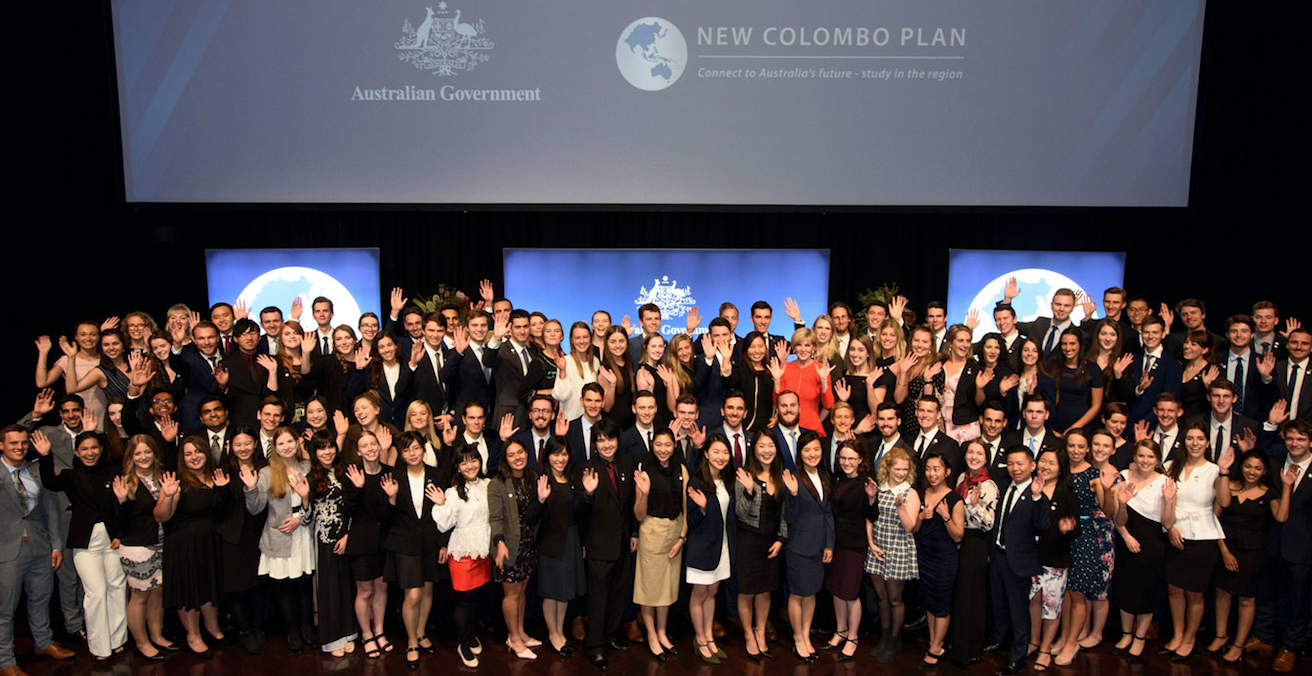Australia’s Use of International Education as Public Diplomacy in China

Australia is using international education programs as public diplomacy to increase its influence and promote policy agendas. Yet determining the impact of public diplomacy through the New Colombo Plan and Australian studies centres is a challenge.
After three years of study at Peking University and interning at the Australia Studies Centre in Beijing, I became curious as to why the Australian Government funds international education programs as public diplomacy. My time in China coincided with the Australian Government’s increased focus on the use of public diplomacy to gain influence in the Indo-Pacific region and China in particular.
If public opinion does indeed impact on policymaking, domestic understanding of the government’s vision and goals for public diplomacy and its nexus with foreign policy, is important. As Julie Bishop stated, “ . . . unnecessary surprises and impulsive changes in policy will almost always lead to poorer outcomes for Australia.”
The new Colombo Plan scholarship
In the early 1950s, Australia embarked on its most ambitious public diplomacy attempt to engage with Asia: the Colombo Plan. While the Colombo Plan saw Asian students coming into Australia to acquire useful skills and knowledge, the NCP is instead focused outwards, with Australian students gravitating towards the region in order to learn from and continue to strengthen ties with the Indo-Pacific region.
Upon their election in 2013, the Coalition introduced the NCP as one of the planks in its public diplomacy strategy, and rebranded and moved prestigious international undergraduate scholarships to DFAT. Specifically, the NCP strategic objective includes prestigious scholarships to support study and internships in the region for up to 19 months. The specific aims outlined in the NCP guidelines include lifting knowledge of the Indo-Pacific in Australia by increasing the number of Australian undergraduate students undertaking study and internships in the region.
Since launching the NCP in 2014, the then Foreign Minister Julie Bishop has provided high-profile and personal sponsorship. In her response to interviews she stated: “As a former Education Minister, I saw the need for greater opportunities for Australian students to study in our region.”
Julie Bishop is confident that the Chinese government continues to show strong support for the NCP stating:
The Chinese Government has indicated its support for the NCP. During a visit early 2017, China’s Foreign Minister Wang Yi said China supported pursuing the NCP with Australia. ‘We stand ready to work more closely with Australia in areas of education, culture, sports, you and sub-national relations and write a new chapter of friendship between our two countries’.
The use of international education as a public diplomacy tool is not without its flaws and criticism. International education is not a short-term strategy, with outcomes often not known for several decades. There are both gaps in the empirical evidence, particularly when it comes to the long-term impact of mobility, and epistemological challenges. Wilson states that “addressing some of these gaps would have political significance.”
Understanding the differences in NCP scholars, according to Lowe, will go some way towards reducing disappointment about the reality, in the short term, to what level undergraduates can contribute to Australia’s public diplomacy at a young age and at the beginning of their careers. Understanding the diversity of their interests and abilities will go some way to seeing international education more realistically as “life-long experiences” rather than “life-long education.”
The major challenge for NCP scholars to achieve the goals of building influential networks, increasing mutual understanding and cultural familiarity was their lack of language skills. There was a strong response that students, should be encouraged or, in the case of mainland China, mandated, to undertake language training prior to their arrival in their host country.
Network of Australia studies centres (ASCs)
The Australia-China Council (ACC) through the Foundation for Australian Studies (FASIC) is responsible for supporting a network of over 30 ASCs located in leading Chinese metropolitan and regional universities. This is a unique partnership between the government, corporate and university sectors to advance Australian studies and education in China.
This arrangement provides opportunities in over 30 universities for Chinese academics to teach and research on topics relating to Australia and its relations with China. In addition, visiting Australian business leaders, students, academics or government officials can tap into an already existing network of interest in Australia’s relations with China.
David Walker, the inaugural Chair, was resolute in his belief that the NCP and the ASC could collaborate for the benefit of both programs and Australia at large:
I would recommend that the NCP scholars spend some or all of their time within universities in China who have established ASCs. […] This would broaden the appeal for Chinese students to study in Australia and about Australia. It would also give the NCP students a chance to go to second and third tier universities.
It was perceived that the limited funding makes it challenging to encourage Chinese academics to contribute to teaching and research in Australian studies. Kevin Hobgood-Brown, stated “funding has remained static for the last ten to fifteen years yet the relationship with China has doubled several times during that period and the number of Centres has increased.”
David Walker cautioned that, just because people have built strong networks and have an interest in Australia, it does not always result in positive reporting of Australia in the Chinese media:
Within the ASCs there is a spectrum of academics who would definitely see Australia as their expertise and they would be called upon to comment in difficult times like now. From the Australian side, it may not be what we want to hear. It is one thing to have people interested in Australia but in some way we are not prepared to hear things we would rather not hear. We have a sensitivity. We love people to love Australia but we don’t necessarily want to hear any criticism.
Should the international education experience be unpleasant, involuntary or full of tension, it might have the reverse impact. Therefore, international education does not always result in desired outcomes.
Australia’s use of international education as a public diplomacy tool
When leveraged successfully, international education is a prime vehicle to contribute to Australia’s foreign policy priorities and interests, including its soft power profile. Public diplomacy is the aspect of foreign policy concerned with the psychological facet of international relations. This means that public diplomacy is used as a core foreign policy tool.
Scholarships have become a pillar for foreign policy action. Given that causality is hard to track, assessing the impact of scholarships as public diplomacy over time has proven to be challenging. There has been considerable rhetoric around the NCP as a public diplomacy tool, but education programs are a long-term investment, making it too soon to evaluate the effectiveness of the program in building a network of influence between Australia and China.
Even though many agree that it would be useful to measure the rhetoric surrounding public diplomacy against reality, the Government’s intent for funding the NCP and the ASCs may change from time to time, to address the political environment. Firstly, the Government’s intent may be to meet the mission of the Public Diplomacy Strategy which includes the engagement of domestic audiences.
Secondly, if the intention is, as stated in government documents, to build relations and mutual understanding between China and Australia, the inability to separate the NCP’s and ASC’s outcomes from other activities, would make the results of any evaluation unreliable. On the other hand, if the Government’s intention is to show China that Australia has an interest in engaging in its region, this is more easily identifiable by the media gained through the high-level support shown by Julie Bishop when she was the Foreign Minister.
Thirdly, if the Government’s intention was to address the public diplomacy issue raised by Education Ministers in Asia regarding the disparity of student flows, then the NCP would again be considered a successful strategy. China has become Australian students’ first choice for exchange and the most popular destination for NCP scholars. However, if soft power is the intent, any evaluation may have diplomatic implications and therefore not be useful or usable by the Government.
Lastly, it may be simply that many countries are using international education as public diplomacy. So regardless of the lack of rigorous evaluation, the Australian Government may be funding international education as public diplomacy simply because other countries are doing it.
The lack of rigorous measurement of outcomes is acknowledged, and this may not appease the evaluation hungry policymakers. However, the possibility that the participants of these programs may influence the nexus between Australian foreign policy, international education as public diplomacy and public engagement with foreign policy is sufficient to justify continued funding or in the case of the ASCs, increased funding.
Bradley McConachie’s PhD from Griffith University was conferred in December 2018. His thesis investigated the role of Australian government funded education programs in building a network of influence between Australia and China in contributing to Australia’s public diplomacy. He spent three years in Beijing in which he worked for the Australia Studies Centre at Peking University and UNESCO.
This article is an extract from McConachie’s article in Volume 73, Issue 2 of the Australian Journal of International Affairs titled ‘Australia’s use of international education as public diplomacy in China: foreign policy or domestic agenda?’. It is republished with permission.





